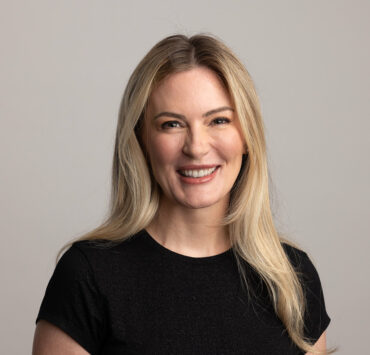Ever since she was a kid, Jill Updike had a passion to serve.
“Although my family didn’t have much economic wealth, I was fortunate that my first-generation immigrant parents were able to provide focused parenting and strong examples of work ethic and emotional resilience needed for me to achieve better than what they had as young adults,” she says. “Because of this foundation, I was able to be involved in my children’s activities such as being a Girl Scout leader, a Band Booster leader, and PTA member as they grew up.”
After her kids graduated high school, Updike turned her attention toward volunteer opportunities that could make an impact in her Maryland community. She participated in the Leadership Baltimore County program to help improve civic engagement in the region. She started serving on the advisory board for the Baltimore Symphony Youth Orchestra. She also started volunteering as a coordinator for the Cadets Drum Corps.
Those experiences have not only given her a chance to set others up for success but have served as a crash course for well-being, informing her work as the vice president of human resources at Children’s National Hospital, an organization that shares her mission to serve young people.
“Ensuring everyone has access to well-being resources and continuous reinforcement to all team members that they are appreciated is key to strengthening the engagement and resiliency of the workforce.”
Jill Updike
“Through these extra ‘parenting’ roles, I have realized the importance of these programs in augmenting the skill building that happens in the home,” Updike says. “These programs help to ensure that our future generations of leaders receive enriching experiences which will enable their success.”
In her current role, which oversees a system consisting of hospitals, health plans, and a pediatrics network, Updike has helped to bring similar benefits to Children’s National employees through well-being programming. She and other leaders have put a lot of time into soliciting feedback on the kinds of resources employees need and as a result, have developed more holistic offerings.
“HR has been proud to work alongside our clinical leaders to address these well-being concerns in a holistic way,” she says. “We have a full range of opportunities already in place for employees to find solace and support which include emotional support programs like our peer-to-peer counseling, Healing Garden, mindful meditation, and other departmental programs to address local concerns, and we also have the traditional benefit plans like EAP [employee assistance program], condition management, exercise, and nutrition programs.”
Children’s National is supplementing those efforts with the launch of an Interprofessional Center for Well-Being, which will provide a strategic framework for addressing cultural and process issues that impact employee engagement and satisfaction.
Those efforts have been especially important as Children’s National and other nonprofit organizations in the healthcare industry continue to recover from the COVID-19 pandemic. Updike says she and other industry leaders are still grappling with skilled worker shortages as a result of economic impacts and revenue interruptions that came with COVID. That reality necessitates rewards strategies that do a better job at responding to what employees need, she notes.
“Ensuring everyone has access to well-being resources and continuous reinforcement to all team members that they are appreciated is key to strengthening the engagement and resiliency of the workforce,” she says.
“Jill Updike’s approach to HR is commendable,” says Rob Hoyt, senior vice president at NFP. “Her comprehensive strategies prioritize team welfare and operational efficiency, serving as a model for HR leadership.”
In addition to the well-being offerings and strategies she’s helped develop, another highlight from Updike’s time at Children’s National is having the opportunity to be the teacher she always wanted to be. She’s proud to lead with a mind for inclusion and with a coach’s mentality.
“I believe leadership is about coaching: teach relevant skills, reinforce the good behaviors, put team members in positions that capitalize on individual strengths, help people learn from past experiences,” she says. “All of this takes honest communication from a place of authentic care for all team members and the patients we serve.”
“[HR] blends the technical—compliance and analytics—application with social and political savvy. The most effective HR people I have observed understand that HR is a long game.”
Jill Updike
Volunteer opportunities aren’t the only experiences that inform Updike’s well-being work. She has also gleaned lessons from her decorated career. She’s worked in a wide variety of industries in various managerial-level HR and compensation roles, as well as an HR consultant. Some of her most enriching career experiences have been in start-up tech companies, where she built HR systems and participated in ground floor strategy development.
“These experiences have provided exposure on a small scale to the full corporate scope of functional areas,” she says. “I use this perspective—scaled to the larger organization—to empathize with functional partners in addressing organizational needs holistically.”
Updike admits that her journey to being a HR leader hasn’t been easy due to the multifaceted nature of her profession.
“It blends the technical—compliance and analytics—application with social and political savvy. The most effective HR people I have observed understand that HR is a long game,” she describes. “It is a perfect blend of consultant, police officer, and teacher. Learning how to formulate the appropriate mix of these roles to get the best outcome in each situation is a nuanced skill which has taken me years of trial and error to get right more often than not. Learning from prior experiences has been key along with the persistence to keep trying.”
There are many lessons young professionals can draw from Updike’s career if they hope to see success along their journeys. They can start with this: “Focus on the big picture and the end game.” “Be tenacious with critical thinking, continuous learning, trying new approaches,” she advises. “Prioritize intent to grow yourself and everyone around you.”
Aetna is honored to work with health care leaders from Children’s National Medical Center. Aetna, a CVS Health business, not only offers specialized solutions for healthcare employers but serves an estimated 34 million people—offering a broad range of traditional, voluntary, and consumer-directed health insurance products and related services. Aetna covers employer groups in all industries.
The Wagner Law Group’s welfare benefits group has extensive knowledge and experience in all aspects of health and welfare plans, and is adept in helping employers maintain their plans in compliance with state and federal requirements. Our attorneys routinely work on matters involving the ACA, No Surprises Act, Health Plan Transparency Rules, HIPAA, Mental Health Parity and Addiction Substance Abuse Equity Act, COBRA, Multiple Employer Welfare Arrangement issues, Medicare Secondary Payor rules, Genetic Information Nondiscrimination Act, general ERISA requirements for welfare plans, Americans with Disabilities Act, Age Discrimination in Employment Act and Family and Medical Leave Act rules. The firm congratulates Jill Updike on her outstanding achievements in the healthcare field.



